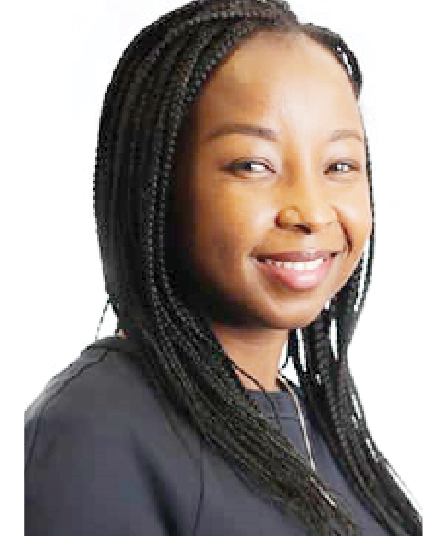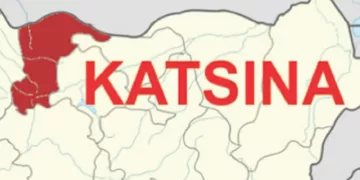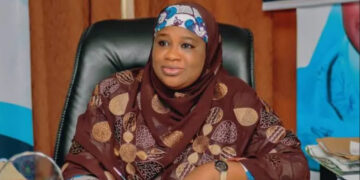Medic West Africa, the region’s leading healthcare trade event, is set to return for its 11th edition from April 17-19, 2024. This year’s edition will connect manufacturers with a diverse audience of over 6,000 trade professionals, including distributors, government officials, and senior healthcare providers.
The event will also host three key conferences as part of its highly anticipated congress. The Medic West Africa Congress continues to serve as a platform to foster dialogue among stakeholders within the West African healthcare sector.
In this interview with ROYAL IBEH, conference director at Informa Markets, Cynthia Makarutse, discusses the long-term impact of the conferences on regional healthcare infrastructure.
With three distinct conferences under one roof, how will Medic West Africa 2024 ensure thematic synergy, and create a cohesive learning experience for attendees with interests in leadership, investment, clinical practice?
Medic West Africa recognizes the importance of catering to the diverse needs of our attendees. While we offer three distinct conferences under one roof – the HFN Healthcare Leadership Conference, the Health Investments Conference, and the Clinical Management Conference – we’ve taken meticulous steps to ensure thematic synergy and create a cohesive learning experience.
Firstly, we have fostered close collaboration with our esteemed partners, the Healthcare Federation of Nigeria, the Private Sector Health Alliance of Nigeria, and the Association of Nigerian Private Medical Practitioners. This collaborative spirit ensures the conferences address current and complementary themes within the healthcare sector. For example, the HFN Healthcare Leadership Conference will explore strategies for optimizing healthcare delivery, while the Clinical Management Conference will delve into best practices for implementing those strategies at the ground level.
The sessions have also been strategically scheduled to encourage cross-pollination of knowledge. This allows for informal knowledge exchange and the potential for future collaborations. Such connections are the cornerstone of a thriving healthcare ecosystem, and Medic West Africa 2024 facilitates this by design.
The conference boasts over 30 speakers. Can you elaborate on the process of selecting speakers and ensuring a well-rounded mix of expertise across the three conferences?
The selection process for Medic West Africa’s esteemed speaker faculty is rigorous and designed to ensure a well-rounded mix of expertise across our three core conferences. To begin, we conduct a thorough analysis of the current healthcare landscape in West Africa. This involves collaborating with regional and international healthcare associations to identify the most pressing issues facing the sector. We also consider emerging trends and advancements that hold particular relevance for the West African context.
Based on this analysis, we then develop a comprehensive program framework encompassing the public, private, and clinical tracks. The selection process goes beyond individual expertise as we strive for a mix of established thought leaders who can provide strategic insights alongside rising stars in the field who offer fresh perspectives. Ultimately, our goal is to curate a program that not only informs but also inspires action. By bringing together a diverse group of thought leaders, Medic West Africa provides a platform for meaningful dialogue and the potential for impactful collaborations that will shape the future of healthcare in West Africa.
The theme of stakeholder dialogue is central to the Medic West Africa Congress. How will the conference format encourage active participation and ensure attendees leave with actionable takeaways beyond knowledge acquisition?
Through our Congress, we aim to empower stakeholders with the tools and connections necessary to turn ideas into action, ultimately accelerating progress within the West African healthcare landscape. This year’s congress themes reflect that commitment. We’ve meticulously crafted the conference format to encourage active participation and ensure attendees leave with not just knowledge, but actionable takeaways that translate into real-world impact.
Our program features interactive panel discussions, workshops, and roundtables. These formats encourage open exchange, allowing attendees to directly engage with industry leaders, policymakers, and healthcare practitioners. This also fosters collaborative problem-solving and the sharing of best practices for tackling critical issues facing the West African healthcare sector.
We will also be placing a strong emphasis on post-conference action. We’ll provide attendees with resources and tools to translate their learning into concrete steps. This could include access to white papers, case studies, and partnership opportunities established during the conference.
The conference focuses on both public and private healthcare providers in West Africa. How will the programming address the specific challenges and opportunities faced by each sector, fostering collaboration for improved healthcare delivery?
Medic West Africa would not have been able to leave as impactful of a legacy as it has if it had not been able to recognize the distinct needs and opportunities faced by both public and private healthcare providers in West Africa. Because we do, we have been able to design a program that addresses these specificities, while simultaneously fostering collaboration for improved healthcare delivery across the entire sector.
For public healthcare providers, the conference program will delve into challenges like resource optimization, navigating budgetary constraints, and implementing large-scale public health initiatives. We’ll host sessions featuring leading experts who will share best practices in areas like procurement strategies for essential medical supplies, maximizing the impact of limited resources, and leveraging technology solutions to improve efficiency within public health systems.
Private healthcare providers, on the other hand, will benefit from sessions addressing topics such as attracting and retaining skilled medical personnel, navigating the evolving regulatory landscape, and integrating innovative technologies to enhance patient care. We’ll also facilitate discussions on building sustainable business models within the private sector, allowing them to contribute significantly to expanded healthcare access in the region.
However, we will be going beyond siloed programming. We’ll actively promote collaboration by hosting joint sessions where public and private stakeholders can come together. This collaborative approach will ultimately lead to a more efficient and effective healthcare delivery system, benefiting patients throughout the region.
Does Medic West Africa offer any other activities or resources to help attendees maximize their learning experience?
Yes, beyond the exhibition floor and conference sessions, we’ve curated additional programs to enhance professional development. One such valuable resource is the series of quality management workshops co-hosted by the Society for Quality in Healthcare in Nigeria (SQHN), the Institute for Healthcare Improvement (IHI) and African Business Coalition Group (ABCHealth).
These targeted workshops will equip healthcare professionals with the latest tools and best practices to improve patient safety and healthcare delivery within their institutions. Participants can expect in-depth discussions and practical strategies for implementing quality improvement initiatives.
Furthermore, we’re excited to present two exclusive forums designed to foster collaboration and address critical topics within the West African healthcare landscape. The Leaders Forum, by invitation only, will bring together government officials and industry leaders for a high-level discussion on shaping the future of healthcare in the region. The second forum, themed “Empowering Female Entrepreneurs: Uniting Visionaries,” is specifically designed to empower women in healthcare. This forum will feature inspiring speakers, interactive workshops, and networking opportunities. It aims to support female entrepreneurs and innovators, fostering their leadership and contributions to West African healthcare.
Beyond immediate takeaways, how does Medic West Africa track the long-term impact of conference learning on attendees’ practices and leadership styles within their healthcare institutions?
It is well known that the true value of a conference lies not just in the immediate knowledge gained, but also in its lasting impact on attendees’ practices and leadership styles within their institutions. Our main goal is to foster not only necessary healthcare equipment trade, but to foster ongoing communication and knowledge sharing. By encouraging discussions on post-conference implementation challenges and successes, we gain valuable insights into the long-term influence of the conference. Ultimately, we strive to be a catalyst for long-term positive change within West African healthcare institutions, thereby leading to improved patient care and a healthier future for the region.





